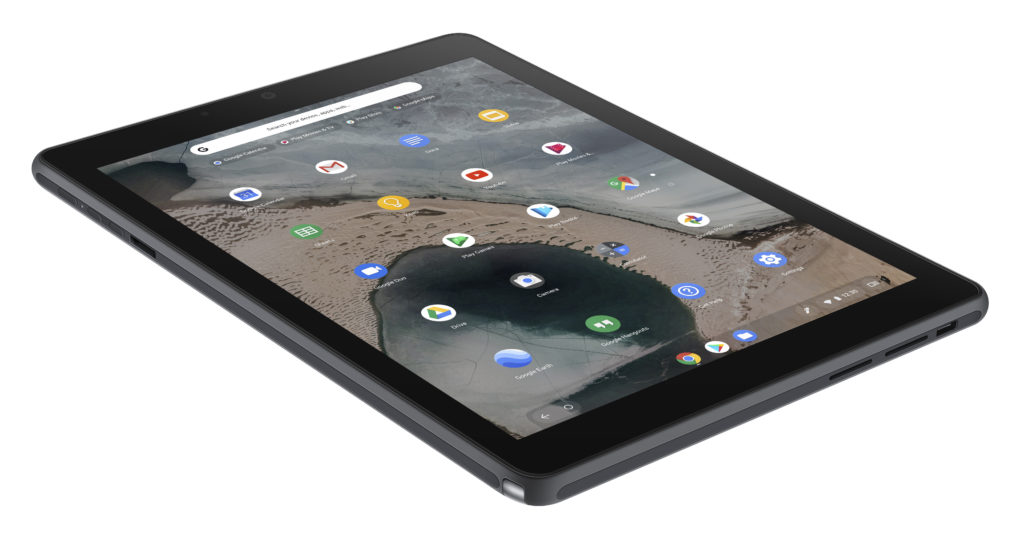It appears that introducing, and then killing the Celeron Pixel Slate may have had a bigger negative impact on Google’s tablet strategy than first thought. According to my pal JR Raphael, Google is no longer planning any of its own tablets and will focus solely on the laptop and 2-in-1 form factors for Chrome OS:
A Google spokesperson directly confirmed all of these details to me. The news was revealed at an internal company meeting on Wednesday, and Google is currently working to reassign employees who were focused on the abandoned projects onto other areas. Many of them, I’m told, have already shifted over to the laptop side of that same self-made hardware division.
There’s now the obvious question about any Pixel Slate successors or other, smaller Chrome OS tablets such as the Flapjack devices, which are expected to be in the 8- and 10.1-inch sizes.
I’ve looked in the Chromium commit logs and still see progress on Flapjack as of now. That means either these are Chrome OS tablets for a Google hardware partner or they were meant to be Made By Google devices and nobody told the developers yet. I suspect the former case is likely because of some specific features I’ve seen for these but I’ll dig around some more and report back when I confirm my thoughts.

If you’re in the market for a Chrome OS tablet, this doesn’t mean you won’t have new choices in the future. Google will continue to develop tablet-specific features for Chrome OS. And it will still support them since the Pixel Slate will receive software updates through June, 2024.
However, you’re out of luck if you want a Google-branded Chrome tablet. Look to Acer, Asus, HP and others such as Dell, Lenovo and Samsung to continue that product line.


12 Comments
“Still see progress on Flapjack as of now. That means either these are Chrome OS tablets for a Google hardware partner or….”
I’m hoping/betting that a hardware partner uses Flapjack. A 10.1-inch screen with workhorse specs (pixel density, RAM, storage, graphics and multi-tasking performance, ports, weight, speakers) would have virtually unlimited market potential. It needs to be a mobility superstar that can instantly turn into a decent desktop (keyboard, mouse, giant monitor) by simply plugging its USB-C into a peripherals hub. For the life of me, it’s so obvious that I can’t see why no one has figured this out yet!!!
Whaaaa???!!!!
Was hoping they would eventually iron out the issues with Android apps running on the Slate, but I trust they will continue their efforts since so many other vendors have 2-in-1 or detachables available.
I guess it’s the HP X2 for me. Will HP be offering an upgraded model with 8/64 and a better processor? Any other detachables going to be released in the near future from other chromebook vendors?
Although I ultimate went with an Acer Spin 13 late last year, it was primarily because I caught a $200-off sale. I was so close to buying the HP X2. Its main/only drawbacks were RAM, storage. Frankly though, the m3 CPU has proven to be more than adequate in all Chromebooks except for those used by Linux lovers and software developers.
I’ve used my Acer R15 as a tablet exclusively. It’s a bit heavy, but it still works great and most Android apps work fine.
Google has a habit of doing this kind of thing. My 1st Chromebook was their Pixel, eventually unsupported, now a paper weight.
“Look to Acer, Asus, HP and others such as Dell, Lenovo and Samsung to continue that product line.”
—
About HP, not so fast…… https://www.bestbuy.com/site/hp-2-in-1-12-3-touch-screen-chromebook-intel-core-m-4gb-memory-32gb-emmc-flash-memory-white/6240850.p?skuId=6240850
I hope this doesn’t discourage Brydge from working on Chrome OS accessories in the future.
Rush in, rush out. No time to look up and see how close they were.
The final major mistake in the Google Slate fiasco.
Tablets seem to be products in search of markets. For most people a phone covers about 90% of the functionality of a small tablet, and large tablets requiring optional keyboards are so much less functional than a similarly sized laptop with integrated keyboard. To each his own, but I think Google is just admitting these are not that popular.
Too bad, I really wish the other OEMS get on board with tablets running Chrome OS. Hopefully, the upcoming 8″ and 10″ tablets are not cancelled.
I received my HP Chromebook X2 this week. I ending up buying the X2 because, as a citizen and resident of Australia, I was able to choose the HP Chromebook X2 with a Core i5 Processor, 8gb RAM and 64gb storage. I was very close to buying a Google Pixel Slate (Core m3 processor) via either grey import seller or try to import my own via a US parcel forwarding service. In the end, I chose the X2 because I was able to get it for A$1300 delivered. Getting a Pixel Slate was going to cost around $1300 landed in Australia either via from a parcel forwarder or the grey importer. But that was without a keyboard or stylus (both of which are included in the x2. I am so glad now that I didn’t choose the Pixel Slate, even though I thought it looks fantastic and seemed to be what I was looking for. However, I went looking for the x2 in Australia after reading about it hear.